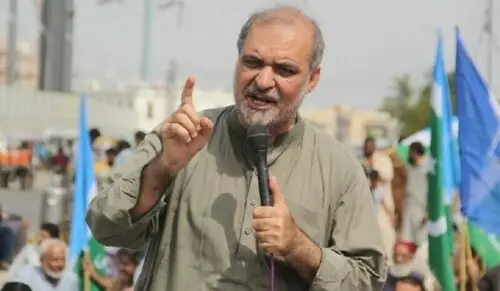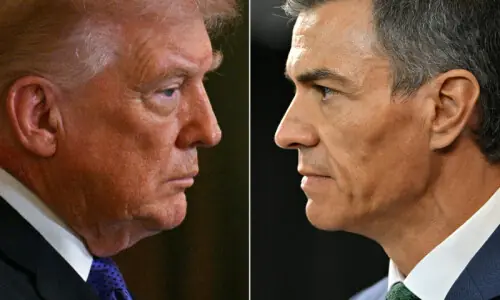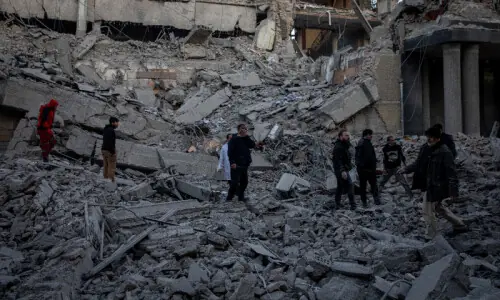KABUL: The Taliban on Thursday confirmed the death of their leader Mullah Omar but did not say when or where he died. The statement says “his [Mullah Omar's] health condition deteriorated in the last two weeks” and “not for a single day did he go to Pakistan”.
The statement went on to say that three days of religious ceremonies would be held “to pray for the soul of Mullah Omar”.
The militants said Omar died of “sickness”, citing family members, contradicting the Afghan government's stance that the one-eyed warrior-cleric had passed away in the Pakistani city Karachi. Afghanistan's premier intelligence agency had also claimed Omar died in a Karachi hospital in April 2013.
Take a look: Mullah Omar died in Karachi in April 2013: Afghan govt.
Omar's death marks a significant blow to the Taliban, which is riven by internal divisions and threatened by the rise of the self-styled Islamic State group, the Middle East jihadist outfit that is making steady inroads in Afghanistan.
“The leadership of the Islamic Emirate and the family of Mullah Omar... announce that leader Mullah Omar died due to a sickness,” a Taliban statement said, using the movement's official name.
The Taliban, who were faced with the tricky process of choosing a successor to the near-mythical figure who led them for some 20 years, appointed Mullah Akhtar Mansoor as their new supreme leader earlier today.
According to DawnNews sources, the Afghan Taliban held meetings Wednesday night, after the reported death of Mullah Omar, and after consultation between members of the Shura Council, elected Mansoor as their new chief.
Mansoor was previously Omar’s deputy, and was running the 20-member council after Omar’s death.
Read: Afghan Taliban Shura elects new emir.
Omar's son Mullah Yakoub was favoured by some commanders, sources said, but at 26 he was considered too young and inexperienced for such a key role.
Meanwhile, a fresh round of peace talks between the militants and the Afghan government, planned for Friday in Pakistan, has been postponed, according to Islamabad.
A Foreign Office statement on Thursday said the Taliban leadership had asked for the postponement “in view of the reports regarding the death of Mullah Omar and the resulting uncertainty”.
But the militants in a statement today appear to distance themselves from the process, casting doubt over its possible effectiveness.
“Media outlets are circulating reports that peace talks will take place very soon... either in the country of China or Pakistan,” the Taliban said in an English-language statement posted on their website on Thursday.
“(Our) political office... are not aware of any such process.”
Read: Peace talks in jeopardy: Afghan Taliban postpone second round of talks.






























